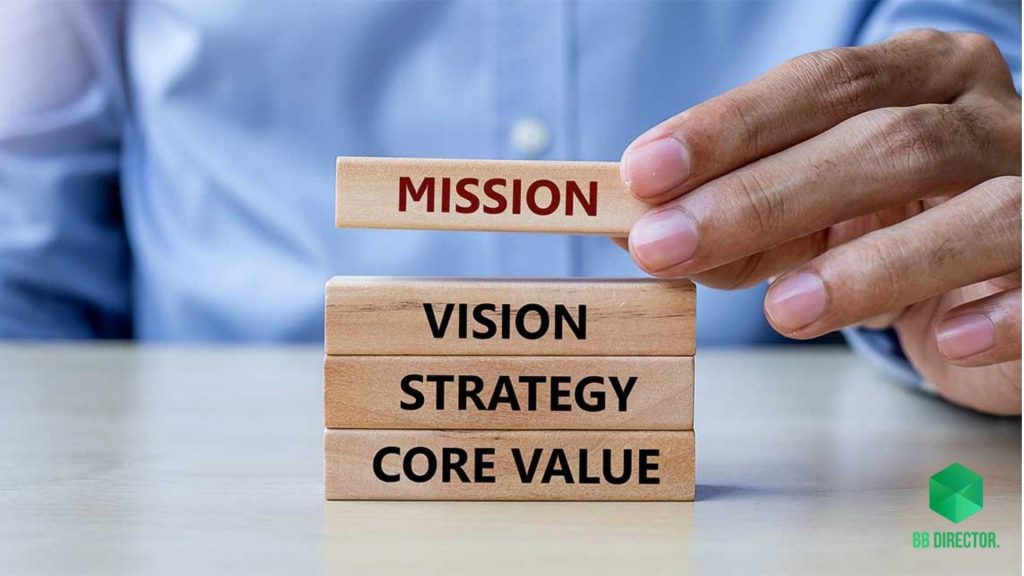A successful strategist is a leader who can inspire, motivate, and get the best out of his people. A leader’s primary responsibility is to lead, and the foundation for great leadership is trust. Strong leaders are driven by more than vague vision.
They aim for clear targets, practical, achievable goals that inspire teams to do great things.
They are passionate about the higher purpose of all they do, and how each target fulfills their big mission.
So let’s see what does it mean to be a successful one. Here are the 44 strategist traits every successful strategist has within him.
Confidence
To be an effective director, you should be confident enough to ensure that others follow your commands. If you are unsure about your own decisions and qualities, then your subordinates will never follow you.
As a leader, you have to be oozing with confidence, show some swagger and assertiveness to gain the respect of your subordinates. This does not mean that you should be overconfident, but you should at least reflect the degree of confidence required to ensure that your followers trust you as a leader.
Self-Motivated
It’s no coincidence that successful leaders have an abundance of self-motivation. Without a decent level of self-motivation, you’ll struggle to become a strong and respected leader. However, if you don’t have a lot of self-motivation right now, don’t despair. One of the secrets is to have definite goals to keep you motivated at all times.
Some people also choose to reward themselves every time they achieve a goal, and this is certainly a good way to keep yourself enthused and motivated.
Vision

A vision is a clear mental picture of who you want to become and what you desire to do at a set time in the future. A vision is an ingredient that launches a leader out of his place of stagnation and into forwarding action.
A leader with a vision knows precisely what he wants and makes it clear to those connected to him. Not only does he speak and dream about his vision, but he also writes it out in detail, formulates a plan, and takes daily action. A leader understands that, without a vision, he won’t live up to his full potential.
Courage
One of the more important strategist traits of a good leader is courage. Having the quality of courage means that you are willing to take risks in the achievement of your goals with no assurance of success.
Because there is no certainty in life or business, every commitment you make and every action you take entails a risk of some kind. Among the seven leadership qualities, courage is the most identifiable outward trait.
Integrity
The importance of integrity should be obvious. Though it may not necessarily be a metric in employee evaluations, integrity is essential for the individual and the organization. It’s especially important for top-level executives who are charting the organization’s course and making countless other significant decisions.
Our research shows that integrity may actually be a potential blind spot for organizations. Make sure your organization reinforces the importance of integrity to leaders at various levels.
Communication

Communication is the key to success, said, everyone. Without clear communication, your employees will have trouble understanding your mission, vision, and goals. Good communication is a leadership attribute for several reasons. Communication should be consistent when it comes to establishing work expectations or giving constructive feedback. With great communication, your employees will have a broad understanding of what they are working for.
Accountability
For accountability, an effective leader needs to follow the advice of Arnold Glasow:
“A good leader takes little more than his share of the blame and little less than his share of the credit.”
A strong leader is accountable for the team’s results, good or bad. They hold themselves and their employees accountable for their actions, which creates a sense of responsibility among the team. They give credit where credit is due, and take responsibility for blame when necessary. Being accountable and leading by example is one of the quickest ways a leader can build trust with their team.
Simplicity
Too often is a realization of professional ignorance and lack of self-confidence manifested by an attempt to conceal these faults by vague and complicated orders, explanations, or conduct. The best results in the performance of a task are obtained by simple and direct methods, where the end to be attained and the means to that end are first clearly understood by the leader and then, through his efforts, clearly understood by his men.
Empathy
Empathy not only allows great leaders to understand their employees and their customers better, but it also is known to enhance prosocial (aka helping) behaviors. Because of this, empathy enables leaders to address issues faster and with more precision, and it makes them more flexible to respond to an ever-changing business environment.
Apologetic
Great leaders are comfortable saying sorry to people. When mistakes are made, they apologize, and at times, they do so in public. They never cover things up. It is a valuable trait as a leader to be able to admit fault and right your wrongs.
Dedicated

A leader is always dedicated to what they do and demonstrates the resilience, determination, and commitment required to achieve results. They understand that there may be obstacles and setbacks along the way, but rather than giving up, they work out how to overcome them. They also show the same dedication with their staff – nurturing their natural talents and allowing them to shine in their specific roles.
Generosity As The Cream Of Leadership Traits

This can have several meanings, but one result of this is that a leader will be willing to give credit where credit is due, spreading that credit for success far and wide as appropriate. A good leader will also see where his personal responsibility is when it comes to failures, as failures are often a result of failures in management or leadership.
Loyalty
The best leaders understand that true loyalty is reciprocal. Because of this, they express that loyalty in tangible ways that benefit the members of their teams. True loyalty is ensuring that all team members have the training and resources to do their jobs.
It’s standing up for team members in crisis and conflict. Daniel Wang, the creator of Loopring Protocol and founder of the Loopring Foundation, has a great thought on this:
“Great leaders see themselves as being in a position of service to their team members, Employees who believe leadership is loyal to them are much more likely to show their own loyalty when it matters.”
Focus
As a leader, having all this innovation at your fingertips is generally a great thing. However, when you, or your team, start to chase those new trends and get caught up in all the noise, you can lose focus on your vision. It’s critical to think long-term, develop a vision, and stick to it.
Respect
To really connect with the people you’re leading, you must also treat them with respect. “Early in my career, I worked for a guy who would just show up in my office and start barking orders at me and then leave like a bomb was dropped,” Lempert says.
“I would feel startled and anxious. Later, I had a boss who would gently knock on the door and say, ‘I need to talk to you about X. It’s probably going to take an hour. Is now a good time?’” For Lempert, the boss who set clear expectations and was respectful of her time was the better leader.
Positivity
One of the leadership qualities of truly great leaders in the sense of abundant positivity that energizes everyone around them. It’s not that they never have moments of frustration or disappointment, but that they’re able to take a positive approach to tackle challenging issues. Inspiring leaders know how to turn setbacks into successes and make a point to display optimistic leadership traits daily.
Choose empowering beliefs that will propel you forward, not negative thought patterns that will weigh you down. Seeing challenges as opportunities rather than obstacles is one of the most important leadership qualities you can display to your teammates. When you practice positive thinking, it becomes your powerful cognitive habit and allows you to reassure and elevate those around you.
Humor

Many leaders are perfectionists, which tends to make them critical of themselves and the people around them. But let’s face it, what can go wrong, usually will go wrong. That’s life! You should have a healthy sense of humor about life and not take yourself too seriously (which can be difficult when you want others to take you seriously).
However, leaders who take themselves too seriously risk alienating people. Effective leaders have the ability to laugh at themselves and understand that they are only human and can make mistakes like everyone else.
Creativity
Sometimes a difficult situation will arise that will require you to think outside of the box and help your team do the same. At such crucial movements, a good leader will be able to demonstrate a unique type of creativity that can help his team push through any situation.
Decisiveness
It’s great to get all the information, but sooner or later someone has to make a decision. The problem is that we don’t have an unlimited amount of time. Decisions need to be made quickly and with ease. Life moves at a fast pace and so should your decisions.
If you aren’t able to act quickly, you may miss important windows of opportunity. At the beginning of my career, we had a new CEO start at our office. Within a few weeks, his indecisiveness paralyzed the entire home office.
Knowledge

This one is simple: good leaders know. They know the field they’re in like the back of their hand and can make decisions whilst being informed. Having a leader who doesn’t know their area, or gets confused when faced with a fairly simple question, creates a lot of uncertainty and distrust within a team and can often lead people in the wrong direction, or even worse – many wrong directions!
Quick Decision Making
Taking quick and effective decisions during a crisis without panic is a good quality of leadership. Here, the time available during an emergency to think about what is right and what is not right is scarce. There is too little time to consult anyone for opinions, advice, and to take suggestions or even help. One has to make a strong decision based on which the success or failure of the situation depends upon.
It is a kind of make-or-break situation. One cannot even estimate the amount of damage, in case one’s decision or action fails. So, taking the right decisions at such a crucial period is a good leadership quality. Some people cannot think and act swiftly in emergencies. Only good leaders can make the right decisions and they will prove themselves successful in almost all situations, which in turn adds a feather to their cap.
Teachability
A great leader knows they don’t have all of the knowledge or answers. They are willing to learn from everyone around them, no matter how small or big the lesson is. There is something to be learned from every success and every failure.
Adaptability
Being able to handle change well makes any leader more efficient. This means that they can handle massive changes in the team, direction, and business model very well. I don’t really care if someone can handle something they have already tackled before and had experience in; I care if they can handle something that they have never experienced before.
Flexibility
A leader needs to be flexible to succeed in the ever-changing and extremely demanding business world. He must possess the ability to cope with uncertainties and sudden changes which are an inevitable part of the modern lifestyle and business environment.
A flexible leader can adapt his leadership and decision-making style depending upon the circumstances. He is always able to keep abreast with the market and act accordingly should something unplanned and surprising happen.
Competence

They are the best at what they do, always accomplishing more than expected. They accept what they’re not good at and are so self-secure that they surround themselves with people whose strengths complement their own. As a result, they attract followers who are continually inspired.
Growth mindset
People at the top of their game have a growth mindset rather than a fixed one, which means they are always looking for ways to learn new things and improve their knowledge and skills. To get ahead as an entrepreneur, keep challenging yourself to grow and develop in a variety of ways.
This could involve steps such as completing courses, reading books and magazines and other content, getting a mentor, receiving training, listening to speakers, and attending workshops. Everything you do to improve your abilities as a leader will positively impact your success and that of your team and organization.
Authenticity
Leaders who are comfortable in their own skin, comfortable with being vulnerable, who are honest and trustworthy, will build the trust that is so important in change. It is much easier for people to embrace and adapt to change in workplaces with high trust levels, and effective change leaders need the ability to build ‘swift trust.’
Embody Your Company Values

Before you communicate your company goals or brainstorm what they might even be, you need to live them. Your values should be at the core of who you are before you broadcast them.
Emotional Intelligence
Of course, every leader needs to be well-versed and knowledgeable in the field they work in, but beyond that lies emotional intelligence. The most effective leaders have developed emotional intelligence skills, which allow them to work better with a wider variety of people.
This skill in itself will benefit you in and outside of work as you grow in your leadership role. With businesses rapidly changing, leaders who can understand and apply the power of other people’s emotions along with their own can facilitate higher levels of collaboration and productivity which puts them at a much higher advantage over those who don’t.
Never repeat the same mistake twice
Everyone makes mistakes but great leaders are those who learn from their mistakes. A mistake is a natural way of stepping your steps towards progress and success but no good leader can afford to make the same mistake twice. Many leaders had a diary of mistakes.
Care
The strongest, most effective leaders I’ve met care not just about the business, but about the people in it and the people impacted by it. Plus, they show they care through their words and actions, even proving how they care for themselves and their family by taking unplugged vacations and continuing their own professional development. Care shouldn’t be a four-letter word in our workplace today — and the best leaders know it.
Handle pressure well

One of the key qualities of a leader is to be able to handle pressure well. As a leader, you’re held accountable for the performance of others, and there will be days when you feel you’ve got a target pinned to your shirt. A study at the Norwegian School of Economics placed emotional stability at the very top of a list of essential leadership traits. Your ability to take good care of yourself and withstand work-related pressure will keep you thinking clearly during periods of stress.
Promotes teamwork
Establishing a philosophy of a team is important to organizational productivity. Executives need to be good at promoting teamwork and setting an example of it. I avoid putting people into leadership positions that stress their own importance above the contributions of others since, in the long run, this is a major organizational de-motivator and also a sign of having too much ego. Besides, showboater and grandstander-type individuals tend to distract from what should be the main issue: organization success.
Expect change and embrace it
Extraordinary leaders understand they operate within complex environments that are continually changing. Of this they are certain. They embrace change, know that random chance and opportunity are constant companions, and stay flexible and agile.
Delegate: The Top Of Leadership Traits
As a successful leader, you must learn to delegate. Refining your brand, vision, and values are essential to creating an efficient and finely tuned business. But if you don’t learn to trust your team to follow through with your ideas and values it can be difficult to move forwards. Trusting your team with an idea is a sign of strength in leadership.
As a leader who everyone looks up to, it is your responsibility to delegate tasks with skill and care, assigning work to the right departments. The more you take on yourself the more quality and standards will suffer and productivity will decline.
Humble presence
Part of being an effective leader is knowing the concerns of your team. The only way to know them is to interact with them as much as you possibly can. Make your presence felt among them as they work. Guide them as they apply their expertise. For you to accomplish this, you need to be humble while interacting with them. This shows genuine concern for them and their feelings. Humility is an important characteristic of a leader.
Top ten in the leadership traits.
Productivity

As an effective team leader, there’s nothing more satisfying than seeing your employees wholeheartedly discussing the product or service you provide. The tricky part is to understand whether it will lead to a productive discussion or unnecessary tension in the workforce. Internal communication studies show that most mergers and acquisitions don’t fail because of conflict. They fail because of the “organizational silence” that stems from the fear of conflict.
Self-Awareness
If you’re authentic, it makes it very difficult not to be honest with everyone – yourself included. However, self-awareness usually comes with a price, and that involves knowing what you’re good at, and what you’re not good at. Being self-aware will help you choose to work with people who complement you. Don’t aim to only hire people who are good at the same things you are. Hire people who can cover some bases you can’t.
Feedback
Leaders should constantly look for opportunities to deliver useful information to team members about their performance. However, there is a fine line between offering employees advice and assistance and micromanaging. By teaching employees how to improve their work and make their own decisions, you will feel more confident delegating tasks to your staff.
This one takes the top of the leadership traits for us.
Nurturing ideas

When your company is in its ideation phase, treat it as an innovation center. Look upon ideas being generated by your people as you would those coming out of an innovation hub. Leverage the unique input of all expertise on your team, rather than driving strategy yourself. This allows leaders to gain buy-in across the organization with the concept that “this is how we create change in our business”, leading to results. This is how you bring about ‘ideas worth implementing’.
Be ethical
Develop strong work ethics and always strive to always do what is right even if it seems hard. Be friendly but firm when it comes to the standard of ethics that need to be adhered to and maintained at the workplace. This will help you keep discipline among your staff and help you attain your goals as a company.
One of the most important leadership traits.
Involved
Similar to being curious, every leader we’ve ever spoken to has discussed the importance of being an involved and hands-on leader. No successful leader should expect their associates or team to do work that they themselves wouldn’t do. By being involved, leaders can set examples and expectations on how work should be completed and what results should be achieved. Ways to be involved included attending meetings, sitting in on calls, and offering up solutions and ideas.
Networkers
Getting things done is more personality-driven rather than process or systems-driven. There’s much stronger in the business world that can be drawn from the people you know. These can be powerful and useful allies, partners, and associates to further your cause and promote your business. Getting the right talent in the organization is linked to who you know, getting licenses is linked to who you know. You must have the right contacts and keep developing your network to succeed. This is one of the most important leadership traits out there.
Principles
Every organization fails at one time or another. If a leader is principled at the time of the failure, he or she is much more likely to learn from it and move on to success. Leaders are defined by their inner strengths and convictions, not the outer portrayal of who they are. Your character will determine your level of leadership and your legacy. Living on principle is one essential that will help you lead well and finish well. There are three elements of being a principled leader: humility, discipline, and integrity.
Strategist Traits Conclusion
Truth be told, it doesn’t matter because both great directors and great leaders strive to do the same and achieve the same.
But it matters to the people you lead and the clients you work with. Do you see the leadership traits above within you? Do you practice them?
If you’re not practicing them, it doesn’t mean you don’t have them. It just means you are bogged down in tasks that prevent you from being the best leader/director you can be. If this is true, then we should talk. We help individuals like you focus on growing your business by helping you take care of non-value-adding tasks that VA’s can do.
If you want to read more about strategists and how they help business grow, read on:

